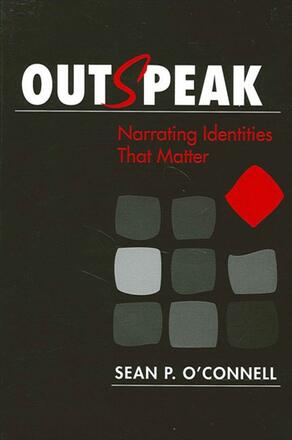
Outspeak
Narrating Identities That Matter
Examines the pleasures, perils, and promises of professing one's sexual identity.
Description
What does it mean to claim to be gay, lesbian, queer, bisexual, straight, or to belong to some racial category, or to be a teenager or a senior citizen? Taking as its focal point the articulation of sexual orientation, Outspeak adopts a narrative approach to understanding professions of identity that does justice to the fears of those who recognize the potential of such labels to oppress, marginalize, and silence. It explores the ways in which professing identity speaks the truth and demands a hearing. In so doing, it addresses the fears of people who see attacks on "gay" and "lesbian" identities as erasing and silencing those who find a voice through them.
To understand the implications of the narrative structure of identity for liberatory praxis, O'Connell enlists the work of theorists such as Michel Foucault, Judith Butler, Luce Irigaray, and Eve Kosofsky Sedgwick, and engages continental thinkers such as Ricoeur, Levinas, Heidegger, and Lyotard, whose ideas add much to the development of a narrative theory.
Sean P. O'Connell is Professor of Philosophy at Albertus Magnus College.
Reviews
"O'Connell's approach to the issues is refreshing. He offers a hermeneutical approach to understandings of gay and lesbian identity. His scholarship is first-rate. The breadth of his resources is quite amazing. Yet O'Connell provides concise, fair summaries of the wide range of philosophers and other scholars whom he engages so that his text remains accessible to those who have not read as widely as he. I am envious of his ability to make extremely difficult texts (for example, those of Judith Butler and Jürgen Habermas) accessible while at the same time doing justice to them. O'Connell's subject matter is one that demands making philosophy relevant to concepts of gender identity and political solidarity. He achieves that goal. " — Sharon Meagher, The Union Institute
"This book will be useful to understanding contemporary ethical theory, feminist theory and political theory. It will be helpful for people struggling with coming out and for those who have long since made themselves known. Importantly, it will serve as a handbook for coalition politics whether that politics involves issues of sexuality or not. " — Alison Leigh Brown, author of Subjects of Deceit: A Phenomenology of Lying